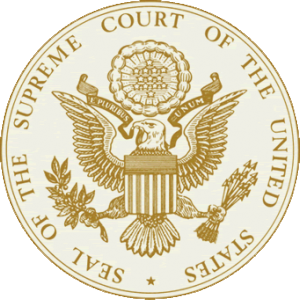Supreme Court Tells California The 1st Amendment Is Still Constitutional
posted Saturday Jul 2, 2011 by Jon Wurm

In November of last year, a California bill was signed into law that banned the sale of "violent" video games to minors, AB 1179. Opposition to the bill has not made its way to the highest court in the land where Denny Crane argued that violence is American and the ban would make our children "namby panbies."
On June 27th of this year, the Supreme Court of the United States finally rendered a verdict that ultimately upholds the First Amendment, under which video games are protected by freedom of speech. Justices Elena Kagan, Anthony Kennedy, Ruth Bader Ginsburg and Sonia Sotomayor echoed sentiments from Justice Antonin Scalia, who wrote in his opinion,
The Act does not comport with the First Amendment. Video games qualify for First Amendment protection. Like protected books, plays, and movies, they communicate ideas through familiar literary devices and features distinctive to the medium. And 'the basic principles of freedom of speech... do not vary' with a new and different communication medium.
How have other organizations responded and how might this still affect you? Hit the break to get the facts.
The National Cable and Telecommunications Association (NCTA) presented the following argument for the ban not to be reinstated.
Courts would have little ability to undertake the critical task of distinguishing regulation of truly harmful speech from regulation of merely objectionable speech. Petitioners invoke concerns about 'violent scenes in television and movies' as well as 'violent music lyrics.' If {they} were to have their way, therefore, it appears that States would be free to regulate any form of speech they deemed potentially harmful to minors' emotional development.
The 7-2 decision that the ban was a violation of the First Amendment might seem like the perfect victory but not quite. Justice Samuel Alito and Chief Justice John Roberts left the door open for the approval of legislation that could allow the government to still interject themselves in matters that should be solved by society.
I would hold only that the particular law at issue here fails to provide the clear notice that the Constitution requires. I would not squelch legislative efforts to deal with what is perceived by some to be a significant and developing social problem. If differently framed statutes are enacted by the States or by the Fed-eral Government, we can consider the constitutionality of those laws when cases challenging them are presented to us.
If you're a little rusty on the details of the how it all started and previous developments then check out my original article. Many of the potential problems associated with the ban have been solved but the larger issue is still on the table. How much room should the government have to make laws that govern societal issues? Especially without out provocation from the people. Seems we aren't out of the woods yet.

